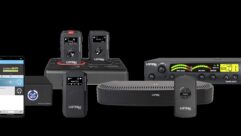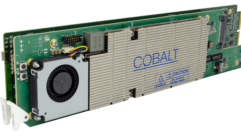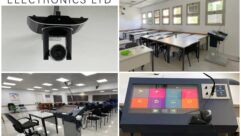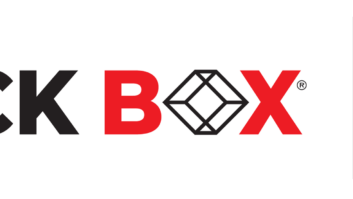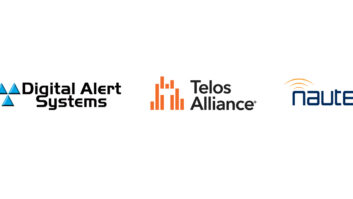EduComm Conference Offers Educators New Opportunities for Learning
Apr 18, 2007 2:25 PM
Despite record-cold temperatures and April snowstorms, it definitely is spring. And that can mean only one thing: tradeshow season! This year’s crop of shows is gearing up to offer even more chances for educators to learn about AV and IT technologies to enhance the classroom experience.
Now in its fourth year, the EduComm Conference, happening June 19-21, 2007 in Anaheim, Calif., has expanded to include more than 40 educational sessions and two keynote speakers. Following up on Steve Wozniak, keynote speaker from 2006, the conference will welcome both Alan Kay and David Pogue in 2007. “Kay is one of the pioneers of the technology movement, is commonly noted as the inventor of the laptop, and worked at Xerox Park where many of today’s technology inventions originated,” says David Fales, publisher of University Business Magazine, which co-produces EduComm with sister publication District Administration Magazine . “He will give a look back at technology and a look ahead at what’s coming.”
Pogue is a personal-technology columnist for the New York Times and an Emmy award-winning tech correspondent for CBS News. He is also author of several For Dummies books, and he created his own series of computer books called Missing Manuals. Pogue has more than 3 million books in print. “[Pogue] is an upbeat and entertaining speaker,” says Dan Kinnaman, president of Professional Media Group. “Both of our keynote speakers this year are strong leaders and can offer their leadership perspective on technology. They are technology experts, not education experts; the education experts are the EduComm attendees. Instead, the keynotes offer a forward look at AV and IT as well as major trends that are happening in the market that can be applied in powerful ways in educational settings.”
EduComm’s educational focus remains the application of technology in schools rather than new product introductions. To fulfill the latter goal, EduComm is once again co-located with InfoComm this year. “This co-location benefits our attendees; they can attend great educational sessions and then go over to InfoComm to see thousands of new products,” Kinnaman says. “Like last year, the EduComm pavilion on the InfoComm show floor will provide an opportunity for educators to see for themselves how they can have future technology right now, through multiple ‘Tomorrow’s Classroom—Today! demonstrations.'”
“The needs of the education market are both technical know-how and practical application,” Fales says. “Educators want to compare notes on what’s driving demand, the trends in student usage of technology, and how to incorporate digital media into the classroom. They want to discuss a specific technology, its reliability and service issues. They need help on how to sort through hundreds of options in the market.”
EduComm offers three higher-education tracks, while K-12 has one focused track. The educational sessions reflect the make-up of attendees, who number three to one from higher education versus K12. However, all attendees can attend any session, whether geared towards higher education or K12. K12 topics for 2007 include “Megamedia in Your Pocket: Nuts and Bolts of iPods, A/V and Education,” “Building School-wide Online Collaboration,” and “Safe Digital Social Networking,” among others.
“The discussion beyond implementing technology gets into content creation and storage. How do you share this information after the class is over? How can students take content and make it their own?” Fales says. “We are offering new overlays that address current trends like Web 2.0, social networking, and collaboration.” Topics covered include “What Educators Need to Know About Web 2.0” (K12) and “Using Wikis in Education” (HiEd).
With so much information to capture and products to experience, the producers of EduComm encourage K12 and higher education institutions to send a team of people. A very successful offer has been the “buy two, get one free” registration promotion. “Our magazines reach the leadership in the organization—the volume buyers and the academic leaders,” Fales says. “But we encourage them to bring people from several different departments in order to fully experience everything.”
Kinnaman also notes that the registration price covers the entire 2 1/2 day session as well as the special events. “As a special reminder to systems integrators, every session is attended by volume buyers from institutions across the country. It is an opportunity to network since you’re sitting with potential customers,” he says. “It is an opportunity to know what’s going on and to spot trends like centralized purchasing, for example. Educators also love to hear from systems integrators and experience a positive face-to-face contact.”
EduComm’s five platinum sponsors for 2007 include Smart Technologies, Extron, Dell, Anystream Apreso, and Sonic Foundry
Those wishing to attend EduComm can register on or before April 27, 2007, to save $100 (early bird fee is $445.)


